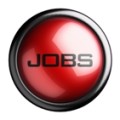Five Questions to Avoid Asking Until After You are Offered the Job

Things You Must Know When Seeking for a Job:Five Questions to Avoid Asking Until After You are Offered the Job
It’s time. You are interviewing for a job that you really want. You are excited about the opportunity. Now is your chance to showcase your expertise and experience with examples showing why you are the perfect match for the job. But be aware, there are certain questions you should not ask until you are offered the job because bringing them up may impede the interview. Here are some of those questions.
“What is this position about?”
Asking this question conveys that you have not researched the position. Many job seekers apply to multiple job postings within a day, so it is possible to lose insight to some of the jobs. Nonetheless, once you are called for an interview, it is important to do your homework. Thoroughly read the job description and review the company’s website to see if there is additional information you can learn about the position. On the contrary, it is appropriate to ask questions to clarify your understanding of the position. For example, if you have a question about something in the job description, you could pose the question as, “I saw in the job description that you are looking for someone who can work in a fast paced environment. Can you tell me what it is like to work in this office?” This question shows you have done your research, yet you would like examples of the position’s qualifications. Walk confidently into the interview knowing that you have done your due diligence.
“What is the salary of this position?”
Every person wants to know the salary or hourly wage for the position they are interviewing for. However, the salary or hourly wage is not the basis of the interview. Keep in mind that you have an opportunity to express how much you can contribute to the organization. Asking a question about salary during the interview can change the pace of the interview and unfortunately may change the interviewer’s impression of you. In addition, it shows that you are more interested in the pay rather than the job itself. Employers want to know you are genuinely interested in the opportunity. Patiently wait until the conclusion of the interview process to see if you are offered the job, and if you are, then talk salary.
“Does the company offer benefits?”
Are you choosing a career because of the benefits? If so, you may want to rethink your job search strategy. In relation to the question about salary, asking such a question takes away from the essence of the interview. Yes, benefits are a great selling point, and it does wheel in applicants for a job opportunity, but it does not make or break the job opportunity for individuals that desire the position. Allow the employer to bring up any incentive or benefit packages, such as medical insurance or worker’s compensation, then you will have room to ask questions.
“When are employees eligible to take vacation days?
This question gives an impression that the perks of the position, such as vacation days, has precedence over the position itself. Hold off from asking a question that is connected to employee benefits until you are offered the job. If you have a future engagement that may intervene with the projected start date of the job, do not suggest that you may need a day off during the interview. This tactic reveals a preconceived notion that you already have the job. Have a plan B and make sure your commitment does not overlap if you happen to get offered the job, but focus on your priorities first. Land the job, and then talk logistics with your manager.
“Did I get the job?”
No matter how sure you are of your interviewing skills, abstain from asking this question at the end of an interview. An interviewee may ask this question out of excitement, but it could make the interviewer uncomfortable, as if you are putting him/her on the spot to make an instant decision, which in turn could suggest that you are overly eager and impatient. Be mindful that your interview is just a portion of the hiring process. The interviewer may still have other candidates to interview; in addition, the interviewer may not make the final decision. Thus, they will need time to process the interviews. In all, remain composed and exit the interview with a positive lasting impression.
As an interviewee, you may wonder, “Is this job a good fit for me?” So, it is only natural to want to ask questions that can affect your happiness and standard of living. But a key component to a successful interview is to ask the right questions. The saying, “There is a right time and right place for everything,” also applies to this process. It is important to ask questions during the interview that are most pertinent to the position. However, once you are offered the job, you have the opportunity to ask the questions above, so you can make an informed decision as to whether it is the right job for you.
